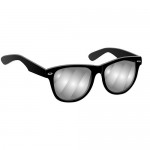If you’re writing a business, self-help, or other instructional book, then it may not seem important to share information about your personal experiences. The purpose of your book is to give people strategies and tips they can use, right? Well, yes, but sharing your background is a powerful way to connect with your readers and show them how your material can help them when they apply it.
For example, if you’re writing a book about how a person can use yoga to overcome stress, you’re obviously going to include historical research about yoga, background about how stress affects a person mentally and physically, and different yoga practices a stressed-out person can incorporate into their daily life. That will be the bulk of the material in your book.
But what compels a person to write a book like that, anyways? Perhaps the author once suffered from stress and eventually found yoga as a solution. This isn’t always the case, but oftentimes an author’s desire to write a book that will help others comes from their own personal experience. They’ve been in the same situation as the reader, and they want to give those folks the resource that they so desperately needed.
Including this story, if you have one, in your book not only makes it more powerful and personal, but it also makes the book unique because it comes directly from you. Here are a few ways to include your story in your book.
-
Your Defining Moment Think back to before you ever heard about the topic of your book and what your life was like then. What situation were you in? What problem were you facing? For many people, this is a low point, but it doesn’t have to be. Your defining moment is a realization that something in your life needs to change, whether in your health or personal satisfaction or career. And most likely, it’s a situation that your ideal reader has found himself in at one time or another.
For example, if you’re writing a book about how to establish a better relationship with your teenager, then your defining moment could have been a time when you felt farther from your own child than you ever had before. Or if you’re writing about how to crate train a new puppy, your defining moment may have been a day when you came home and found your house destroyed. Or maybe your defining moment was an encounter with someone who changed the way you see the world. Whatever it was, your defining moment inspired you to take action and seek the solutions you now want to share.
-
Your First Introduction What was your first experience with the topic of your book? How were you first introduced? What was your situation before you learned about the topic? What problem were you facing? And what made you look for a solution? Let’s look again at the yoga example mentioned previously. If you were stressed out, maybe your doctor or a friend suggested you take a yoga class. Maybe you had some preconceptions about yoga before you tried it-maybe you were skeptical. Did you have this type of experience with the material you teach in your book? If so, write it down as clearly and honestly as you can. Your readers, who find themselves in a similar situation, will relate.
-
Your Steps in the Process If your relationship to your material can’t be traced back to a single, specific event, then look for a series of events or realizations that brought you to where you are today. For example, if you’ve developed a process for starting any business on a shoestring, then think about the steps you went through when you were getting your business ideas off the ground. What didn’t work? What would you have done differently? What worked better than you expected? Think about how the steps and strategies you’re writing in your book are similar to the steps you took in your own life, and write about how you connected all the dots to develop the process you’re sharing with your readers.
Sharing the Story of Your Material As you’re writing your how-to nonfiction book, think about these three different ways to incorporate your personal experiences. Doing so not only makes your book more interesting, but it also builds rapport with your readers and shows them the benefits of following your experience-earned instruction!
— — Melinda Copp helps aspiring self-help, business, and nonfiction authors write and publish books that establish expertise, attract clients and opportunities, and share their message in a compelling way. Visit https://www.writerssherpaprograms.com/writeabook.html for a free copy of her Write Your Book Quick-Start Mini E-course.

![Reblog this post [with Zemanta]](https://img.zemanta.com/reblog_e.png?x-id=3374aa62-36c2-4884-b64b-0325c5807955)

